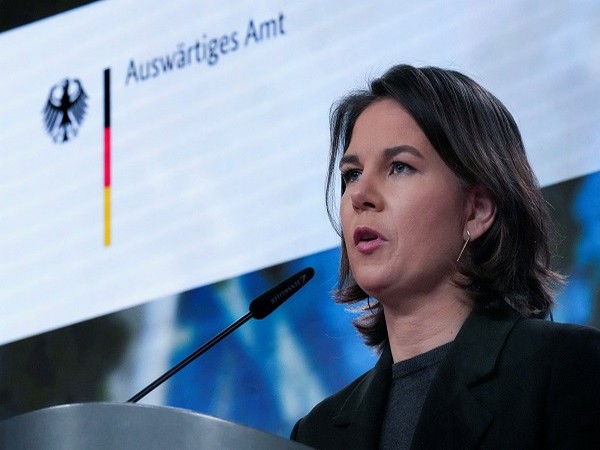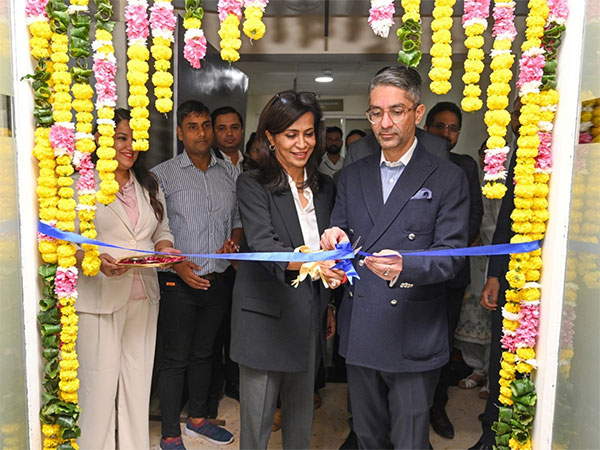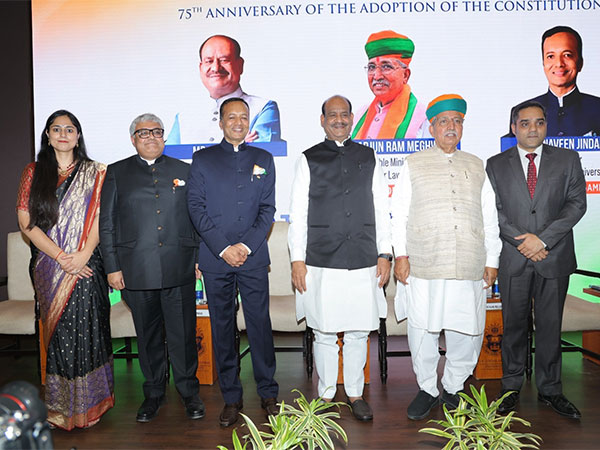
Germany's Baerbock agrees closer tie with South Korea
Apr 16, 2023
Seoul [South Korea], April 16:Germany and South Korea on Saturday agreed on closer cooperation following rising tensions on the Korean peninsula and China's aggression in the Indo-Pacific.
German Foreign Minister AnnalenaBaerbock visited the border with North Korea immediately after she arrived in South Korea and later held talks in Seoul with South Korean Foreign Minister Park Jin. "South Korea is not only a consolidated democracy but also one of our closest valued partners outside Europe," Baerbock told reporters. She told Park about the Korean peninsula's tensions: "North Korea's missile tests, which are contrary to international law, cannot be justified by anything and pose a real threat to security in the Pacific and to your country in particular.
"You can count on us to stand firmly by your side as partners." Baerbock said Germany would "not ignore North Korea's aggressive behaviour and constant breaches of international law" and would continue to participate in sanctions. She added that Germany could learn a lot from South Korea, especially given the German government's plans to strengthen economic security by diversifying supply chains. She also announced deepening economic relations and a stronger joint fight against climate change.
Park said that given the 140th anniversary of German-Korean relations this year, the strategic dialogue between the two countries was particularly significant.
Remarking on a North Korean missile test this week, Park added: "We need a stern response at an international level", including from Germany. Denuclearization remains the goal of South Korea. At the Demilitarized Zone (DMZ) between capitalist South Korea and isolated communist North Korea, Green politician Baerbock was informed about the situation on the politically tense peninsula.
More than 1 million soldiers face each other at the highly weaponized border at the 38th parallel. In addition, the United States has 28,500 soldiers stationed in South Korea. Under international law, both Koreas have been at war since the end of their conflict in 1953. There never was a peace treaty. At the end of the fighting, a military buffer zone was created across the peninsula, about 240 kilometres long and 4 kilometres wide. The DMZ still forms the de facto border today.
The zone has repeatedly been the scene of a propaganda war between the two states. On both sides, loudspeaker broadcasts and announcements proclaim the advantages of the other system. Almost half of South Korea's nearly 52 million inhabitants live in the wider metropolitan area of Seoul, close to the heavily fortified border. South Korea is the world's 10th-largest economy and seventh-largest exporting nation. Tensions on the Korean peninsula have risen sharply in recent months. According to the German government, North Korea last year carried out 35 tests with at least 60 missiles, including four tests of intercontinental ballistic missiles (ICBM).
On Friday, North Korean state media reported that the country had made significant progress in nuclear deterrence. A new type of ICBM of Hwasongpho-18 with solid fuel was successfully tested under the guidance of the country's leader Kim Jong Un. While ICBMs are considered the most important means of delivering nuclear weapons, solid-fuel-propelled missiles are being prepared to be ready for deployment quickly. North Korea described the new missile as a strategic offensive weapon and, in the future, the "most powerful, central and primary means" to defend the country and deter aggressors.
Before flying to South Korea, Baerbock made her inaugural visit to China. She discussed China's support for Russia as it wages its war in Ukraine, the situation around Taiwan and human rights. On Sunday, she wants to talk to people who have fled North Korea at the Goethe Institute in Seoul before flying to Japan's G7 foreign ministers' meeting.
Source: Qatar Tribune






